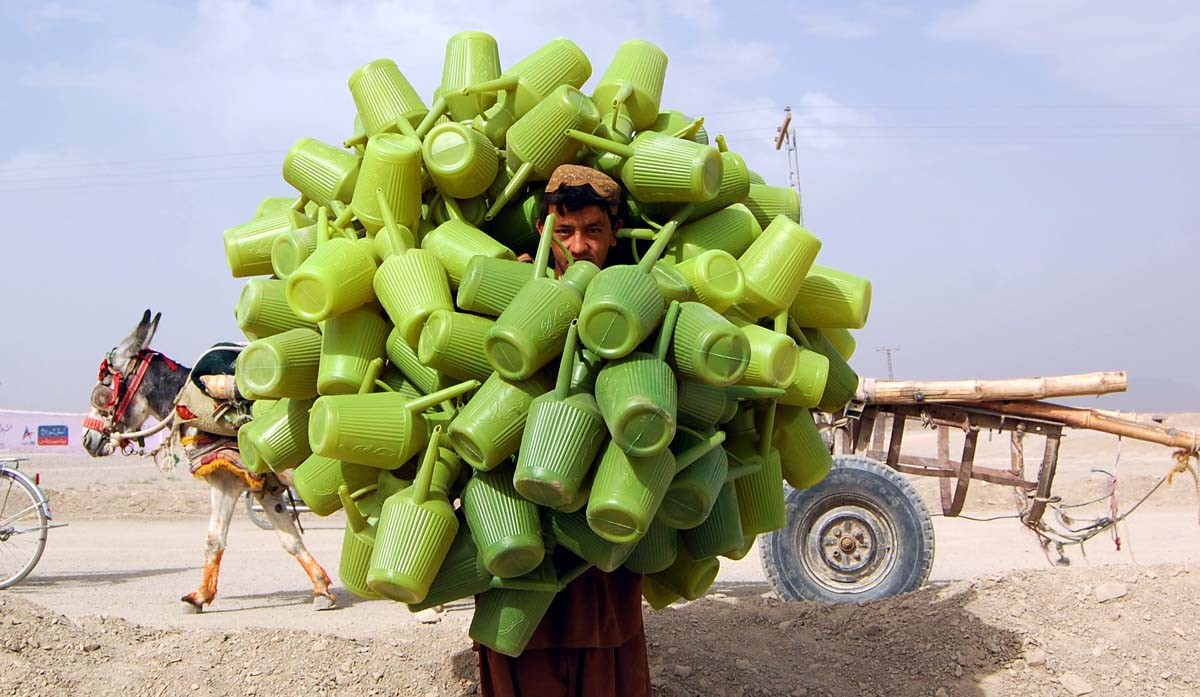
Peshawar: Faisal, 26, an Afghan refugee is living a comfortable life in Pakistan. He sells fruits and vegetables at Swati Bazzar Peshawar. “I am born and raised in Pakistan. Afghanistan is now a foreign country for me. Everything associated with me has Pakistani identity to it—my childhood, my profession, my social circle.
“I am not making millions in Pakistan, but if today I return to Afghanistan, I would not be able to make even this much. I do not want to go back. I see Pakistan government’s demand to repatriate the Afghan refugees as sheer injustice. There is hardly any opportunity for us in Afghanistan, the country is still at war. I have decided to apply for asylum,” says Faisal.
Nabi Gulho, lives at Shamshatoo refugee camp told the News Lens Pakistan that over the last three decades two Afghan generations have grown up in Pakistan. “Leaving Pakistan at this stage for a country, which is still not stable and is facing civil war, is a difficult prospect,” says Nabi Gull.
After the attack on the Army Public School on 17 December 2014, the government of Pakistan prepared twenty points National Action Plan to harness terrorism in the country. The plan includes rigorously pursing the policy to deal with the issue of Afghan refugees. As a first step towards the new resolve, the registration process of all the Afghan refugees living illegally in Pakistan was kicked off immediately. The government of Khyber Pakhtunkhwa (KP) also decided to restrict the movement of Afghan refugees to the refugee camps.
According to the United Nations High Commissioner for Refugees (UNHCR) report released in March 2015, on the Afghan Refugees Repatriation Fact Sheet for Khyber Pakhtunkhwa and Federally Administrated Tribal Areas, 2.3 million refugees have been repatriated since 2002, with the highest number ─ 811,299 ─ repatriated in 2002, and the lowest ─ 6,394 ─ in 2014.
Most of these refugees are based in KP because of the proximity of the region with Afghanistan. Many Afghans have migrated to large cities and have secured Pakistani nationality. However, those living in the Afghan refugees camps depend on the Pakistan government or the UNHCR for their survival.
The government of Pakistan started registering Afghan refugees in 2006-7 with the support of UNHCR. Almost 2.15 million Afghan were registered and issued Proof of Registration (POR) cards, valid until December 2009. In December 2012 the government, in view of the worsening law and order situation in Kabul extended the stay of Afghan refugees in Pakistan until 30 June 2013. In July 2013, Pakistan government approved a new policy for the Afghan refugees, which included the extension of the PoR cards and the Tripartite Agreement on Voluntary Repatriation until 31 December 2015. Following the APS massacre, the process of repatriation and registration of the Afghan refugees has accelerated.
According to the UNHCR, report 10,777 Afghan refugees have repatriated between January and March this year. Around 3,000 to 4,000 Afghan refugees leave Pakistan every month. Forty-one percent of the refugees have returned fearing harassment at the hand of the law enforcement agencies in Pakistan.
Rehmat Wali an Afghan refugee working as a carpenter at Omid Abad Peshawar has no legal document or refugee card.
“I have learnt that the law enforcement agency will soon apprehend me for not having legal documents to stay in Pakistan as a refugee. I consider Pakistan my home because I have grown up here. For me leaving Pakistan and settling in Afghanistan is impossible,” said Rehmat Wali.
There are currently 965,301 Afghan refugees living in Pakistan─ 53 percent of these live in host communities, while 47 percent live in 64 refugee villages. UNHCR says repatriation of all refugees may not be possible by December 2015.
Dunya Aslam Khan, the Public Information Officer UNHCR, told the News Lens Pakistan that his organization was hopeful that being a responsible country Pakistan would not put undue pressure on the Afghan refugees to leave the country.
Imtiaz Gul, the Executive Director of Center for Research and Security Studies consider it impossible to send almost all the Afghans back to their country. He believes that those Afghans who have been living in Pakistan over the last three decades have deepened their roots in this country. They have business here. Their social and economic live is linked to Pakistan.
“It is illogical of the Pakistan authorities to solely blame Afghans for terrorism in Pakistan. Pakistanis are more involved in crimes than Afghans,” says Gul.




This is sad that they are been asked to return to their country. But on the other side of the pictures these Afghani hate Pakistanis who are working in Afghanistan. I have been there for one year and I came to know their hate for us. One of cousin was killed in Afghanistan. Ye log EHSAN FARAMOSH hen. They like India and Indian more than Pakistan.
Pakistan Govt ne bari ghalti ki ke inko Pakistan men khula chor dia… in ko aik had tak control kar k rakhna chahye tha… They are involved in crimes here, they are burden on Pak economy.
Regards